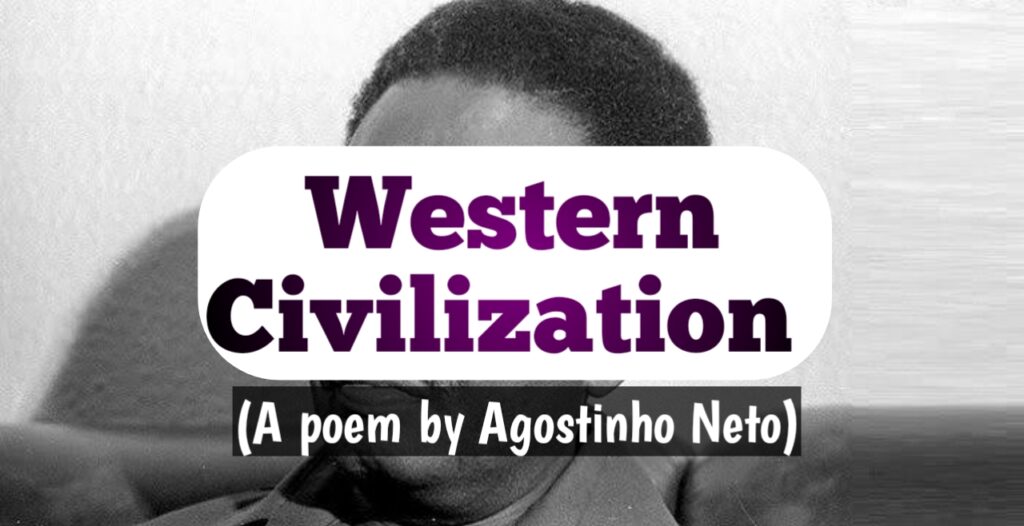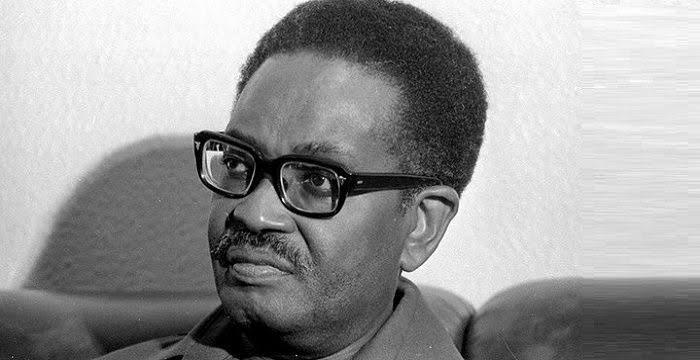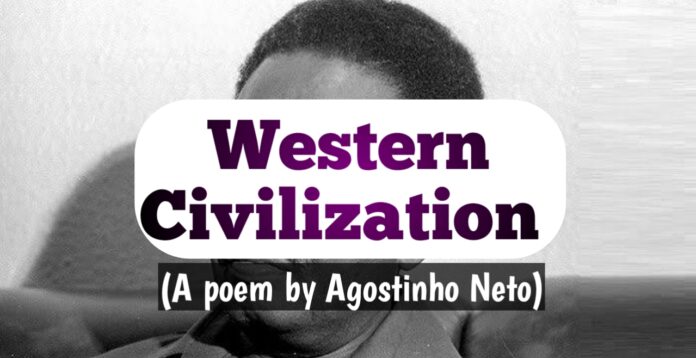Western Civilization (Translated from Portuguese by Margret Dickinson.) Sheets of tin nailed to posts driven in the ground make up the house. Some rags complete the intimate landscape. The sun slanting though cracks welcomes the owner After twelve hour of slave labour. breaking rock shifting rock breaking rock shifting rock fair weather wet weather breaking rock shifting rock Old age comes early. A mat on dark nights is enough when he dies gratefully of hunger. — Agostinho Neto
Summary of “Western Civilization”
“Western Civilization” by Agostinho Neto is a poem that starkly exposes the brutality of colonialism through the image of an exhausted labourer who toils endlessly for his colonizers. The labourer lives in poverty and dies of hunger ironically under the banner of “Western civilization.”

The poem depicts the grim reality of poverty and exploitation experienced by labourers within a Westernised society. It portrays the harsh living conditions and the impoverished existence of workers who inhabit simple dwellings made of tin and rags.
The labourer’s daily routine is characterised by backbreaking work, symbolised by the repetitive tasks of breaking and shifting rocks. This repetitive labour reflects the monotony and hardship endured by the working class. Despite their toil, the labourers age prematurely due to the harsh conditions they face.
“Western Civilization” concludes with a stark depiction of death as a form of release from suffering. In death, the worker finds relief from hunger and hardship.
About the Poet
António Agostinho Neto was a prominent Angolan politician, poet, and revolutionary who served as the first President of Angola from 1975 until his death in 1979.

Neto was born in Icolo e Bengo, Angola, to a Methodist minister and a school teacher. He attended the prestigious Liceu Salvador Correia secondary school in Luanda, the capital of Angola. In 1947, he moved to Portugal to study medicine at the University of Coimbra. He became involved in anti-colonial politics and was imprisoned for two years in 1951. After his release, he moved to Lisbon and continued his studies.
He was instrumental in Angola’s struggle for independence from Portuguese colonial rule. He led the Popular Movement for the Liberation of Angola (MPLA) in the war for independence (1961–1974). Neto’s leadership helped pave the way for Angola’s independence in 1975.
Neto died in Moscow in 1979 after a long illness. He was 56 years old at the time of his demise.
Also in Similar Categories
- Poem: THE GRIEVED LANDS OF AFRICA by Agostinho Neto
- Content Analysis of Agostinho Neto’s THE GRIEVED LANDS OF AFRICA
 WHATSAPP: Click HERE to join the new Literature PADI WhatsApp group to receive latest updates on your phone and for further literary discussions!
WHATSAPP: Click HERE to join the new Literature PADI WhatsApp group to receive latest updates on your phone and for further literary discussions!










